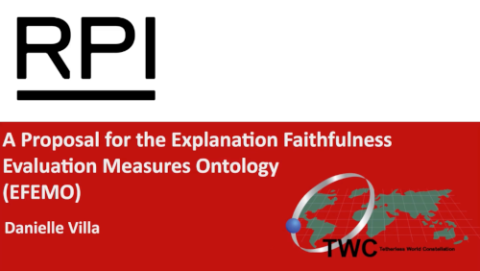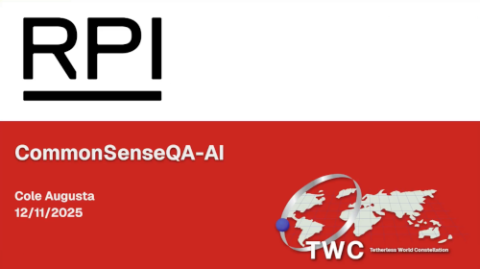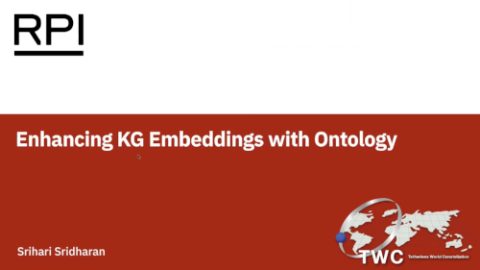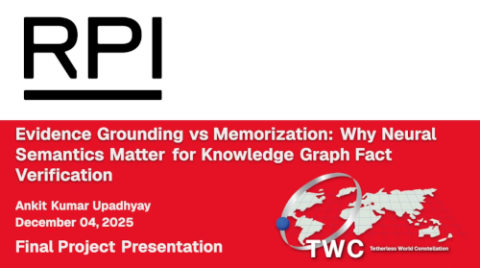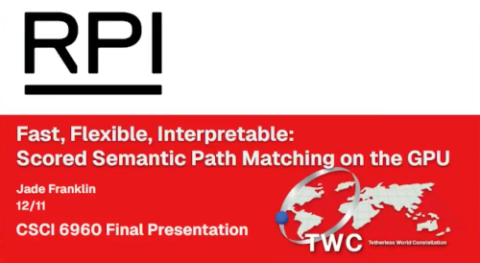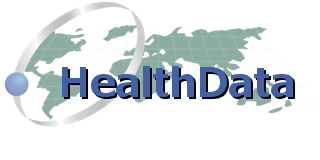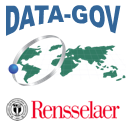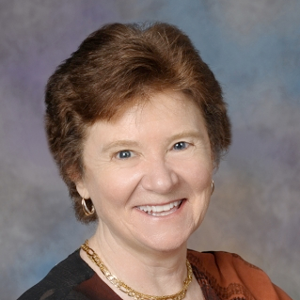
Homepage: https://www.cs.rpi.edu/~dlm/
Twitter: https://twitter.com/dlmcguinness
Deborah McGuinness is the Tetherless World Senior Constellation Chair and Professor of Computer and Cognitive Science. She is also the founding director of the Web Science Research Center at Rensselaer Polytechnic Institute. Deborah has been recognized with awards as a fellow of the American Association for the Advancement of Science (AAAS) for contributions to the Semantic Web, knowledge representation, and reasoning environments and as the recipient of the Robert Engelmore award from Association for the Advancement of Artificial Intelligence (AAAI) for leadership in Semantic Web research and in bridging Artificial Intelligence (AI) and eScience, significant contributions to deployed AI applications, and extensive service to the AI community. Deborah is a leading authority on the semantic web and has been working in knowledge representation and reasoning environments for over 30 years. Deborah's primary research thrusts include work on semantically-enabled schema and data integration, ontologies, open linked data, data science, and foundational knowledge representation and reasoning to support a wide range of informatics and analysis efforts. Prior to joining RPI, Deborah was the acting director of the Knowledge Systems, Artificial Intelligence Laboratory and Senior Research Scientist in the Computer Science Department of Stanford University, and previous to that she was at AT&T Bell Laboratories.
Deborah is also widely known for her leading role in the development of the W3C Recommended Web Ontology Language (OWL), her work on earlier description logic languages and environments, including the CLASSIC knowledge representation system, and more recently, her work on interdisciplinary semantic data resources, provenance languages and environments, including InferenceWeb, PML, and PROV. She has built and deployed numerous ontology environments and ontology-enhanced applications, including some that have been in continuous use for over a decade at AT&T and Lucent, and two that have won deployment awards for variation reduction on plant floors and interdisciplinary virtual observatories. Recent application thrusts include health informatics and smart environmental monitoring. Some current and recent projects can be explored at http://tw.rpi.edu/web/person/Deborah_L_McGuinness/Projects . She has published over 350 peer-reviewed papers and has authored granted patents in knowledge based systems, ontology environments, configuration, and search technology.
She also consults with clients wishing to plan, develop, deploy, and maintain semantic web and/or AI applications. Some areas of recent work include: data science, next generation health advisors, ontology design and evolution environments, semantically-enabled virtual observatories, semantic integration of scientific data, context-aware mobile applications, search, eCommerce, configuration, and supply chain management. She is a frequent technology advisory board member, currently or previously with Qualcomm, OrbMedia, SocialWire, and Sandpiper Software. She also advised Applied Semantics, Guru Worldwide, and Cerebra prior to their acquisitions. Deborah has also worked as an expert witness in a number of cases, and has deposition and trial experience.
Deborah received her Bachelor's degree in Math and Computer Science from Duke University, her Masters degree in Computer Science from University of California at Berkeley, and her Ph.D. in Computer Science from Rutgers University.
An archive of KSL content may be found here.
Affiliations: Tetherless World Constellation, The Rensselaer Institute for Data Exploration and Applications, Rensselaer Polytechnic Institute

